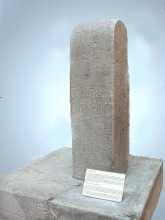The most recent conflict involves the country of Turkey and three museums which hold artifacts that Turkey claims are theirs by right. The New York Met, the British Museum and the Victoria and Albert Museum are all in possession of items which were obtained from Turkish sites. How these museums came into possession of said artifacts is up for debate, though no doubt some of them were obtained quite legally.
In retaliation, the Turkish Ministry of Culture is refusing to allow any of their museum pieces to be lent to the three offending museums until the dispute is properly resolved. This is causing stress to those who have organized exhibitions and been promised a loan of key pieces from Turkish museums.
The whole affair raises the question of whether it is more important for historical artifacts to be present in their home country or whether it is more beneficial that these items are somewhere that people can see and appreciate them. I am no fan of selling archaeological remains on the black market, but pieces that have been in museums for more than 100 years and sales that were negotiated when the ownership of artifacts was a free market rather than a cultural preservation brings questions of circumstance to light.
These items are being seen by people who might never have otherwise had the opportunity to view them and are traveling to places that they most likely never would have. What is better for the understanding of history – ownership or visibility?
